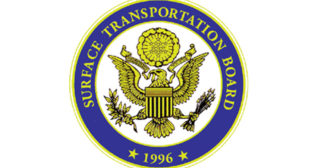
Senators Reintroduce Reliable Rail Service Act
Written by Marybeth Luczak, Executive Editor
The Reliable Rail Service Act has been reintroduced by U.S. Sens. Tammy Baldwin (D-Wis.) and Roger Marshall (R-Kans.). The original debuted in September 2022 but did not move forward.
U.S. Sens. Tammy Baldwin (D-Wis.) and Roger Marshall (R-Kans.) on June 28 reintroduced the Reliable Rail Service Act to clarify the railroads’ common carrier obligation and establish specific criteria for the Surface Transportation Board (STB) to consider when evaluating whether that obligation is being met. They said it would “give shippers much-needed certainty that is currently lacking.”
Current ambiguity around the common carrier obligation—“which under current law requires rail carriers to serve the wider shipping public ‘on reasonable request’”—has “contributed to insufficient rail services,” the Senators said.
According to the bill (download below), the STB should consider:
- “[I]mpacts of reductions or changes in the frequency of transportation or service, and the availability and maintenance of reasonable local service schedules and delivery windows.”
- “[I]mpacts of reductions in employment levels, including reductions in clerical, customer service, maintenance, dispatch and train and engine service employees; reductions or changes in train or yard crew availability; and the consolidation or shifting of crews across or within service territories.”
- “[I]mpacts of reductions in equipment and the availability of equipment, maintenance of equipment or railroad infrastructure, lines and yards, or shifting of equipment across or within service territories or customer and commodity groups.”
- “[W]hether the service reasonably meets the local operational and service requirements of the person requesting transportation or service that are consistent with the person’s needs and requirements for the efficient and reliable receipt, transportation and delivery of property.”
- “[T]he transportation needs or circumstances of the person requesting transportation or service based upon previous service experience and taking into account any physical or operational limitations or restrictions at a facility or location.”
- “[T]he commitment of the person requesting transportation or service of equipment or other resources to support the transportation or service.”
- “[W]hether any conditions imposed by the rail carrier as requirements for service are required to meet the local service requirements of the person requesting service or permit the rail carrier to recover its variable cost of providing the requested transportation or service.”
- “[H]ow the carrier is handling equipment owned by others.”
- “[W]hether conditions imposed by the rail carrier as requirements for service, including demurrage, are reasonably reciprocated to meet the service requirements of the person requesting service.”
Sen. Baldwin debuted the original bill last September to revise “freight rail transportation policy to require rail carriers to provide transportation or service in a manner that meets the shipper’s need for timely, efficient, and reliable rail service and fulfills the shipper’s reasonable service requirements.” It also sought to establish criteria for STB to consider “when determining whether a rail carrier has violated its obligations under the policy.” While the bill was referred to the U.S. Senate Committee on Commerce, Science, and Transportation, it did not move forward.
“Ensuring our agriculture, energy and manufacturing businesses have reliable rail service will be crucial in leveling the playing field for Wisconsin businesses who depend on rail service and helping cut costs for working families,” Sen. Baldwin said. “I’m proud to reintroduce my Reliable Rail Service Act to keep our Made in Wisconsin economy moving forward.”
“I frequently hear from Kansans that the service of Class I railroads is not living up to the expectations,” Sen. Marshall noted. “These service failures hurt our shippers who use the rail to deliver their products to key export facilities; that’s why the Staggers Act of 1980 must be modernized to clearly define railroad’s common carrier obligations.”
Some 50 agricultural, labor, manufacturing and transportation organizations are backing the legislation (download list below, which is part of a legislation summary document prepared by the Senators’ offices).
“Clarification of the common carrier obligation has been needed for decades and this bipartisan bill provides STB with clear oversight rules to help address our nation’s freight railroad supply chain challenges and improve rail service for agricultural shippers,” said Mike Seyfert, President and CEO of the National Grain and Feed Association.
“We urge Democrats and Republicans support to support this legislation, which will help ensure railroads live up to their obligation to provide reliable service,” said Chris Jahn, President and CEO of the American Chemistry Council.
Editor’s Comment: Another piece of unnecessary, political-grandstanding-based legislation that should go into the dustbin. — William C. Vantuono



